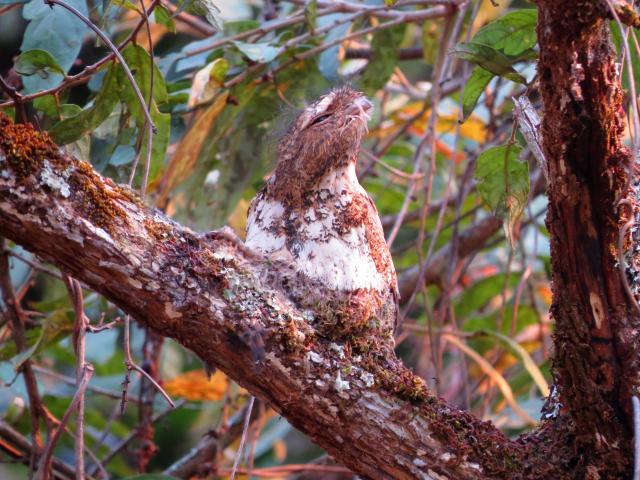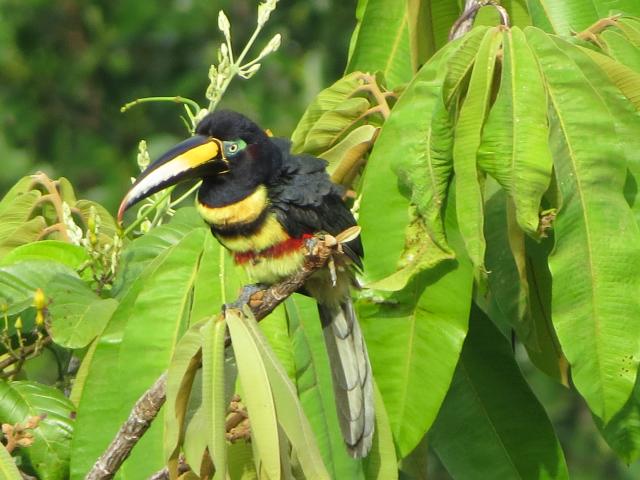By Gabriella Vukman
Upon first encountering Chris Doughty, his northern English twang and occasional scoffing chuckles paint a relaxed, jovial and eccentric character.
It doesn’t take long to realise that he has a blazing enthusiasm for all things birds, a passion which has taken him on tremendous birding trips around the world, to writing his own book.
Born in the ‘50s and growing up in the industrial county of Lancashire, Chris described a class system, wherein hobbies such as bird watching were not blue-collar activities.
“My father didn’t like it. He would say, ‘I’ve got five sons. Four sportsmen and a bloody bird watcher’,” Chris said.
“He didn’t think it was the sort of thing a working-class boy should do. He told me once that it was for retired army officers. If I mentioned bird watching around the dinner table he’d say ‘tosser’.”
While Chris maintained that he “never got any encouragement” for bird watching from his father as a youngster, he said his mother was quite okay with his fascination.
“Our parents would take us out into the countryside to collect blackberries, one day my mother showed me an English Robin, the red-breasted kind you see on Christmas cards,” Chris said.
“I was amazed at how beautiful it was. Previously I thought there were only sparrows and starlings because I came from an industrial town.
“The following day I went and got the observer’s book of British birds. It was the first book I ever bought. Now I have hundreds of books and have been hooked on birding ever since.”
Having written the first ever published field guide for the birds of Vanuatu, Solomon Islands and New Caledonia in a 12-month period, Chris’ achievements swayed the attitude of his father from ‘you’ll never make any money from a published book’, to being proud of his son’s achievements.
Travelling between the three countries and the British Museum in London, Chris assembled a team including one of Australia’s leading bird artists and a children’s book illustrator to capture the plumage of birds for his field guide.
“I wrote the whole thing in 12 months. An Englishman had already started a field guide on Vanuatu, New Caledonia and the Solomon Islands a few years before me. This guy published his book twenty years after I’d published mine. The text is better in his book but the illustrations are better in mine,” Chris said.
Multiple species in Chris’ field guide had only previously been described, now illustrated for the first time.
Chris was 19 when he immigrated to Australia in the 1970s.
“One day my father called a family council meeting and said, ‘I’m thinking of immigrating to either South Africa, New Zealand or Australia.’ Deciding on Australia was the best decision he ever made,” Chris said.
Arriving via boat being the last of the ‘ten-pound poms’, Chris instantly began to warm to the tribulations of Aussie life.
“Things were just so much better in Australia for someone who had a bit of ’get up and go’ who was prepared to work hard. Australians will give you a fair go. I got three jobs the first day I arrived. They’d say, ’look mate if you can do the job, it’s yours. If you can’t do the job we’ll fire you.’ That would never happen in England.”
Chris also celebrated the vast and eclectic species of birds that call Australia home.
“We decided to settle in Melbourne because my parent’s friends from our hometown in England had settled in Preston. We went to a migrant hostel in Springvale.
“My parents were inspecting a home in Bayswater and we were looking around the garden when I spotted a Tawny Frogmouth. It was then I knew I had to convince my dad to buy that house. I never saw a Tawny Frogmouth there again but it became like an omen to me.”
After renting their first house in Croydon, Chris and his wife bought a home and are still settled in Mooroolbark.
“It was just luck that we settled in the Yarra Valley,” Chris said.
“I now know Melbourne like the back of my hand and this is a fantastic place for a birdwatcher to live.
Having worked in multinational corporations, Chris decided to turn his bird obsession into an entrepreneurial venture.
“My wife and I discussed it and she agreed to let me start my own bird tour company. If it didn’t work I could always go back to middle management,” Chris said.
“We had to make a decision. Do we go and borrow money from the bank or do we offer my services to an established travel company in Melbourne? My wife decided on the second option because she’s a bookkeeper. She didn’t like the idea of borrowing money from the bank.“
Chris conducted some research and decided to approach a company called Peregrine Expeditions.
Diverging from the company’s main focus on trekking in the Himalayas and white water rafting, Chris paid the company’s “flash little office in Little Collins St” a visit.
Chris requested admission to speak to then managing director Mr Ashford, before pushing past the secretary into his office.
Mr Ashford asked if he had an appointment to which Chris replied ‘No, but I’ve got an idea on how to make money.” From there Chris built up a worldwide birding travel opportunity, making the name ‘Peregrine Expeditions’ his own when the company went bankrupt three years later.
“I put all the tours together and I approached overseas ground operators. I would offer one tour to each continent, so six tours a year. I had a mailing list which had been Peregrine’s mailing list,“ he said.
“I went out on my own 38 years ago and it’s just grown ever since.”
Chris also showed overseas bird-watching groups around Australia, as well as taking book writing and binocular selling.
“I conducted three-week bird watching tours up the east coast of Australia starting in Tasmania and progressing up to Cairns. We’d fly to Melbourne and have a 20-seater bus booked and then off we’d go. Then we’d fly from there to Brisbane and then we’d fly to Cairns,” he said.
Being held up at gunpoint in New Guinea was one of Chris’ most gripping stories.
“A group felled a tree across the road and came out with machetes and guns. We couldn’t drive over the tree nor go around it because there was jungle on either side. They asked for money. And they know about money belts. Luckily I only had a little bit of money under my shirt to give them. I had the rest in my boot and had hidden my binoculars in a sack of rice.”
Coming up in November, Chris is leading his final tour trip to West Papua to see the birds of paradise.
“I’m going to retire from Peregrine bird tours because I’m 70 years of age now and my health is still good. I’ve seen most of the world’s birds so anything I haven’t seen is just a variation of something I have seen.”
“The vast majority are found in New Guinea and they’re just spectacular. The local natives of New Guinea shoot them and wear the feathers in their headdresses. These headdresses are passed down from father to son for generations.”
Having seen over 8,200 of the world’s ten thousand species of bird, only eleven people in the world have seen more birds than Chris. Further, having observed 830 species of bird in Australia alone, Chris has seen the fourth-largest number of birds in the nation.
“I’ve been doing this for 40 years, and now it’s time for me to start to slow down a bit. It doesn’t mean I will stop bird-watching overseas, it just means that I’ll go with my wife and my eldest son.”








